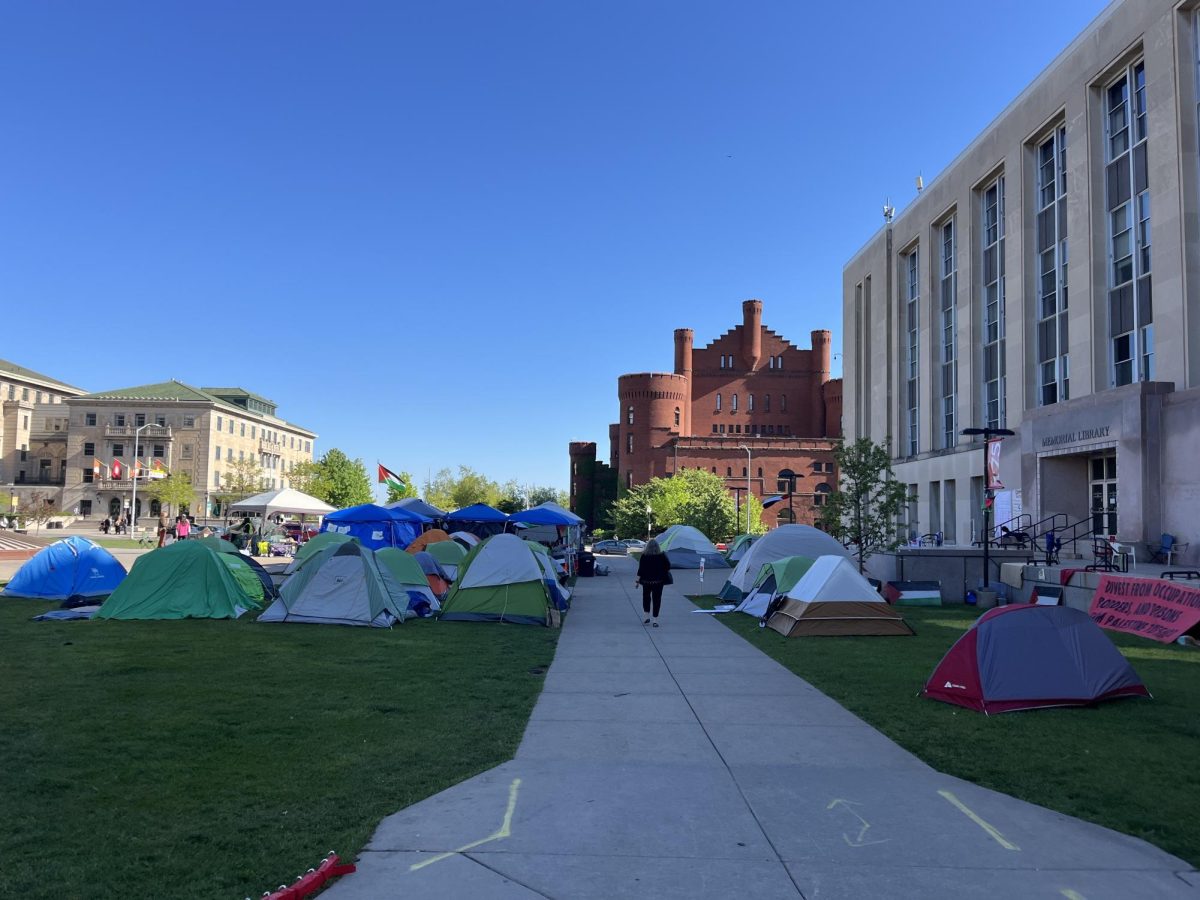University of Wisconsin graduate Linnea Smith shared stories Thursday about her life-changing vacation to Peru, and said her two-decade trip transformed her medical career.
“Somewhere along the way, at the end of the week when it got time to move on, I said, ‘I don’t think I want to leave this place,'” Smith said in a talk as part of the Distinguished Lecture Series. “I came home to the house that I’d lived in for 13 years … and I still wanted to be back in Peru. So I told my partners about this and they said, ‘You know, that’s a really stupid idea.”
But for Smith, that “stupid idea” coincided with the vision of the Wisconsin Idea, which she said is about independent thinking, taking your experience to the wider world and bringing the wider world into your own life.
DLS Director Eric Schmidt emphasized the concept of the Wisconsin Idea, as he spoke about dinner with Smith before the talk.
“It takes a very special kind of person to leave their entire world — the whole world that they know — and go and do such robust humanitarian work,” Schmidt said. “I’m proud that Dr. Smith came out of this university, and I think everyone else should be as well.”
While in Peru, Smith examined 150 to 250 patients per month, dealing with medical issues like family planning, vaccines, the occasional trauma and the treatment of intestinal parasites and various infectious diseases.
UW junior Becca Chimis said Smith’s talk reinforced her desire to pursue public health care as a career in diverse communities.
“I really like how she connected her talk back to this country and pointed out that there is a really harsh juxtaposition between the two countries, but at the same time there is so much similarity,” Chimis said. “By working with both countries, you can make an enormous impact. You can change people’s lives in a very real way.”
Smith spoke of some of the hardships she experienced in regard to the Peruvian government. In her book “La Doctura,” Smith wrote that she devoted an entire chapter to the red tape she encountered when setting up her clinic.
Smith touched on the difficulty of telling certain patients that she was incapable of helping them.
“Medical care is different in Peru,” Smith said. “If you need a heart transplant, you’re going to die. It’s recognizing the need to say, ‘I’m sorry, I can’t help you.’ And that can be hard.”










